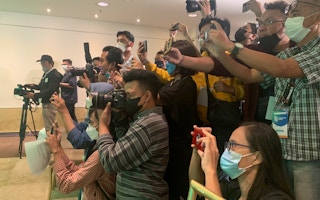Two years ago, when Bangalore-based freelance journalist Vasudevan Sridharan tried investigating the pollution of a protected bird sanctuary by India’s largest pharmaceutical firm, his work was hobbled by restrictions to data. Some of the information that he needed was basic. But the limits put in place by private entities to access crucial statistics were “unimaginable”, he said.
Fast forward to 2023, and media freedom is on the decline in the world’s largest democracy. The latest press freedom index sees India slip 11 ranks to 161st out of 180 countries, and describes how media takeovers by oligarchs who maintain close ties with political leaders have caused the media environment to turn from “problematic” to “very bad”. “Scrutinising wealthy private entities, which enjoy the favour of the ruling administration, has become nearly impossible,” said Sridharan.
A closer look at the annual media freedom index, in which Paris-based press watchdog Reporters Without Borders (RSF) assesses the state of media freedom globally, shows a mixed picture in Asia Pacific. In Southeast Asia, most nations in the region have shown some progress in the ranking. For example, changes of government loosened constraints on the media in the Philippines, which now ranks 132nd for press freedom, according to RSF, even though the archipelago is one of the world’s most dangerous countries for journalists.
Renewals of government coalitions has also created more media-friendly environments in Sri Lanka, ranked 135th, and Malaysia, ranked 73rd.
Press freedom in Asia Pacific
The region’s 10 freest countries for journalists – according to the Reporters Without Borders press freedom index – are (ranking in brackets):
New Zealand (13), Australia (27), Taiwan (35), South Korea (47), Papua New Guinea (59), Japan (68), Malaysia (73), Mongolia (88), Bhutan (90) and Nepal (95).
The region’s 10 least free countries for journalists are:
Brunei (142), Cambodia (147), Pakistan (150), Laos (160), India (161), Bangladesh (163), Myanmar (173), Vietnam (178), China (179) and North Korea (180)
Source: Reporters Without Borders
However, Asia Pacific continues to have some of the world’s worst regimes for journalists, and environmental journalists are noticing how limits on the press are starting to throttle their independence.
Once a bastion of press freedom, Hong Kong, a Special Administrative Region of the People’s Republic of China, has seen an unprecedented setback since 2020 when Beijing adopted a restrictive National Security Law. In two separate reports released this month, both the Hong Kong Journalists’ Association and the Foreign Correspondents’ Club of Hong Kong pointed out the deteriorating environment for journalists.
Tom Grundy, the founder and editor-in-chief of one of the city’s few remaining independent news publications, Hong Kong Free Press, told Eco-Business that while environmental issues felt like safe reporting territory a few years ago, the red line is shifting. “Reporting on the climate crisis seems fair game . But a few years ago, we thought that LGBTQ [referring to lesbian, gay, bisexual, transgender, queer issues] was a safe topic. Now lawmakers are saying the Gay Games are a national security risk. Every subject is now potentially risky,” he said.
Countries run by one-party regimes, such as China, North Korea and Vietnam, have the tightest grip on the media in Asia. A Vietnamese journalist Eco-Business interviewed under the condition of anonymity said that all journalists in Vietnam self-censor. Journalists like Pham Doan Trang have been jailed for reporting on human rights, a crime for which she was sentenced to nine years for spreading “anti-state propaganda”. Stories about polluting firms have been removed, journalists fired and media companies fined.
In the following interviews, Eco-Business questioned journalists in Singapore, Hong Kong, Vietnam, Indonesia, India, Thailand, and Bangladesh about the state of play for press freedom in their juristictions and the challenges they face in holding corporations to account for social and environmental abuses.
The situation is dire compared to how the city used to be – a bastion of press freedom for the region.
Tom Grundy, founder and editor-in-chief, Hong Kong Free Press
India
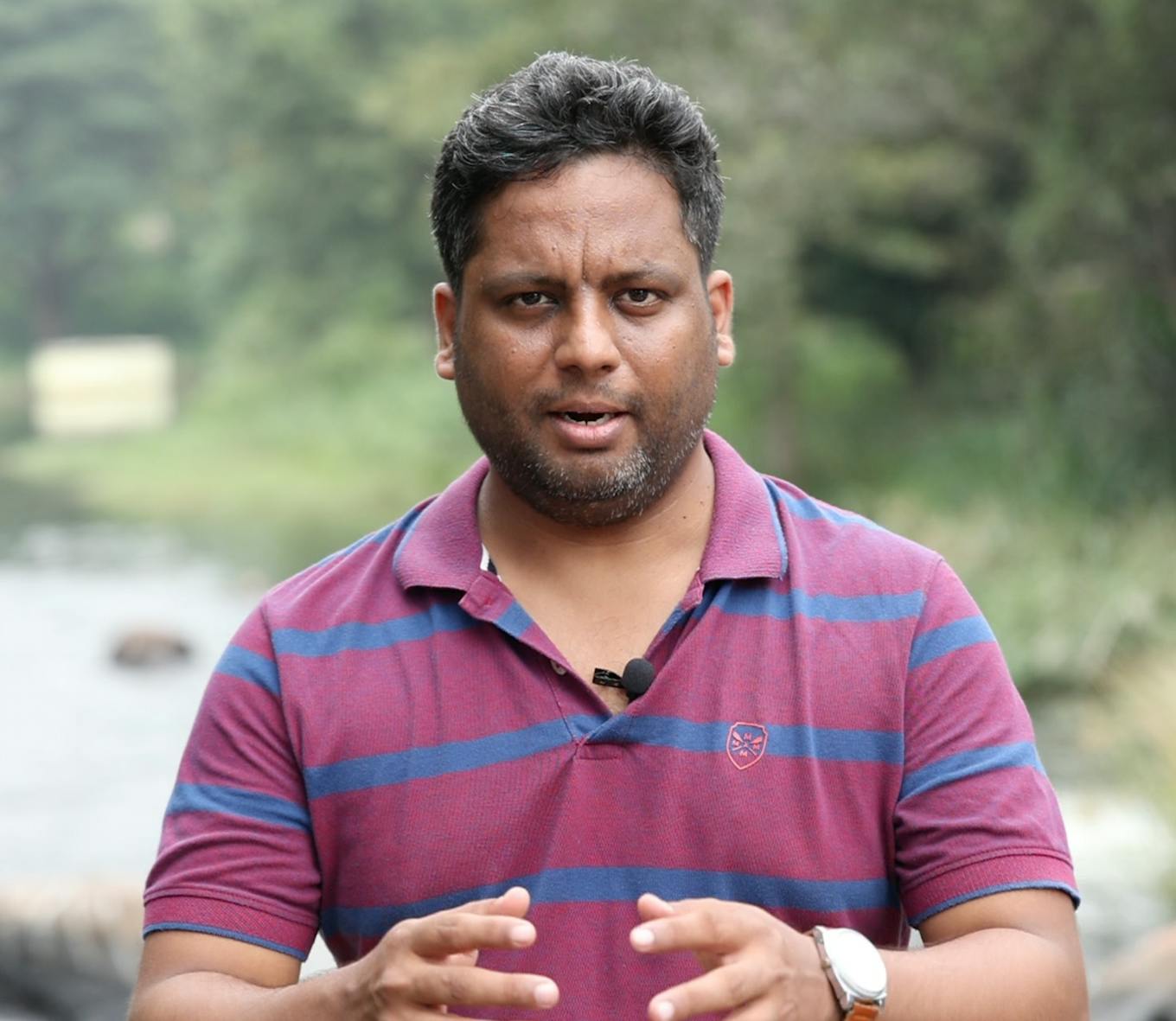
Vasudevan Sridharan is a freelance journalist based in Bangalore, India
Vasudevan Sridharan is a freelance journalist based in Bangalore. He has written for South China Morning Post, Mongabay, Deutsche Welle, and Eco-Business, reporting on the struggles of young Indian climate activists.
In India, the curbs on press freedom are systematic and multi-layered. There exists an entire ecosystem, constantly being built and fortified, which is powered by government agencies, law enforcement, state-friendly think tanks, business enterprises, obscure non-government organisations (NGOs), influential social media channels, and disinformation systems. These forces often work in tandem to stifle dissenting voices.
The challenges are particularly evident in environmental reporting, as it is a specialised field that is still in its infancy in India, unlike political or business journalism. Journalists often face difficulties due to limited access to data, insufficient learning tools, a crackdown on non-profit organisations (which are valuable sources of information), and a lack of funding, all of which make our jobs more challenging.
Corporations exploit the vulnerabilities and shortcomings of newsrooms. Large businesses have successfully globalised their profits while localising their violations and crimes. This means they have learnt the art of handling their environmental transgressions at a local level, and by doing so avoid widespread attention and remain under the radar.
For instance, during my investigation into how India’s largest pharmaceutical company is polluting the country’s oldest avian sanctuary, I encountered unimaginable restrictions on accessing crucial data. Scrutinising wealthy private entities, which enjoy the favour of the ruling administration, has become nearly impossible.
Another recent example involves allegations of prolonged mercury pollution in a hilly region uncovered by a journalist-turned-author. Despite the unwavering evidence presented, it is bewildering to witness the impunity with which corporations operate.
Hong Kong
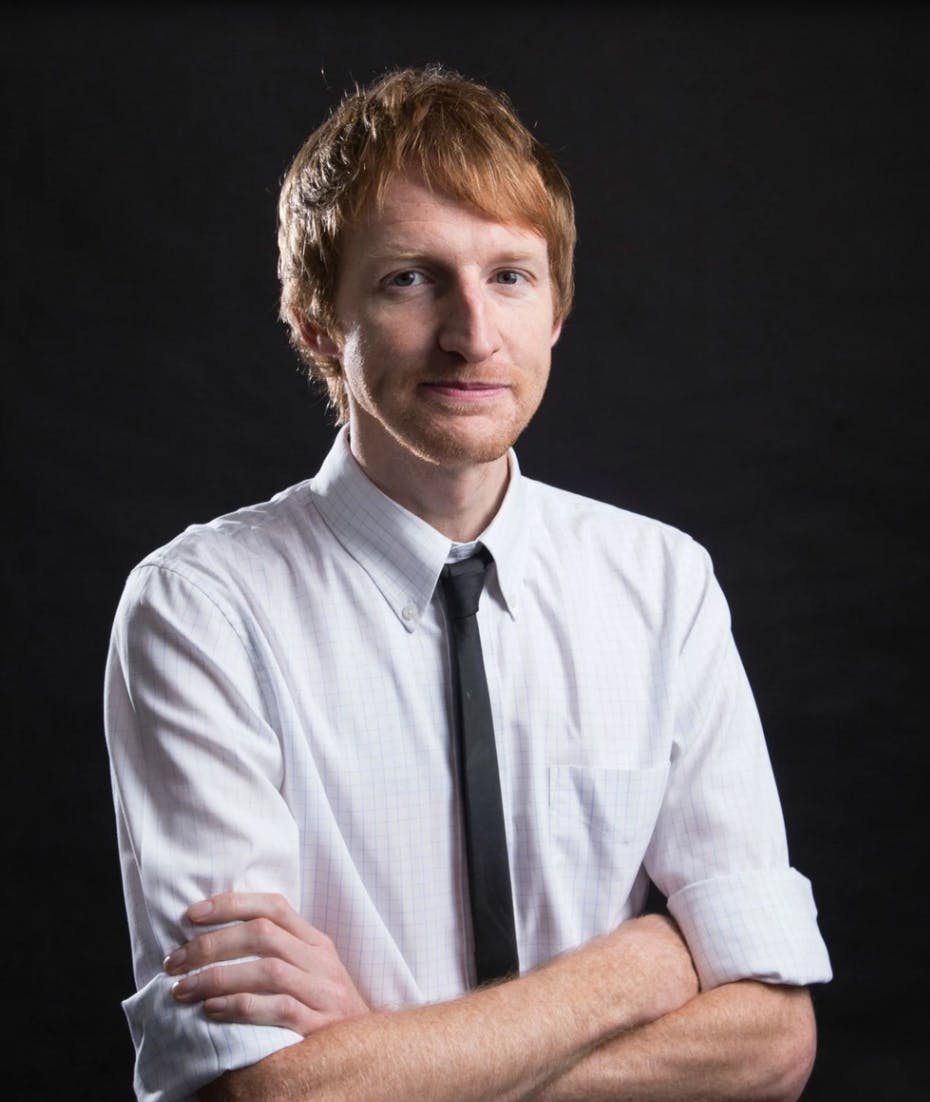
Tom Grundy ran the city news blog Hongwrong.com before launching HKFP in 2015.
Tom Grundy is founder and editor-in-chief of Hong Kong Free Press, one of the city’s only surviving independent news outlets. A former English teacher, Grundy launched HKFP in 2015, covering Hong Kong’s “umbrella revolution” pro-democracy.
International press freedom indices have been tumbling since the onset of the National Security Law in Hong Kong [in 2020], with journalists arrested, newsrooms raided and normal hard-news reporting and opinion sections literally in the dock – a verdict on the Stand News case [the now-defunct non-profit social and political news site was accused of publishing seditious articles] is expected in October. The New York Times has pulled some of their staff, Deutsche Welle set up in Taiwan instead of here. The decline in press freedom is rarely out of the news [see our timeline]. We’ve chosen to remain here and carry on because we feel there is still enough breathing room for us to get the hard news out. But the situation is dire compared to how the city used to be – a bastion of press freedom for the region.
Environmental or sustainability stories have not presented much of a problem at the moment. But the red line does keep shifting. It was unthinkable to us a few months ago that a fairly innocuous think tank would find itself in the cross-hairs of the state-run press (never a good sign) for questioning a project formerly known as Lantau Tomorrow Vision, which involves filling in part of the sea to build housing at the cost of billions – despite there being brownfield sites that could be built upon.
It’s difficult to say whether there has been a chilling effect over environmental reporting in Hong Kong. It may be self-censorship by omission. Reporting on the climate crisis seems fair game. But a few years ago, we thought that LGBTQ was a safe topic. Now lawmakers are saying the Gay Games are a national security risk. Every subject is now potentially risky. But press freedom can be difficult to measure. Self-censorship is often an invisible process within newsrooms. If anything, environmental news is a chance for us to lean in and do robust reporting. I reported on the Hong Kong police leaving spent tear gas grenades all over a marine park island after a training exercise earlier this year. It was traditional hold-the-authorities-to-account reporting – and they ended up clearing up the canisters as a result of our story.
Vietnam
The Ho Chi Minh City-based Vietnamese freelance journalist Eco-Business spoke to did not want to be identified. Vietnam ranks near-bottom of the Reporters Without Borders press freedom ranking, just above China and North Korea. This journalist has covered environmental news and human rights in Vietnam under various pen names.
All media outlets in Vietnam are state-owned, either wholly or partially. To write for a state publication, you must have a physical press pass. If you don’t have one, you’re effectively not a journalist – independent journalists are not officially recognised as journalists in Vietnam. According to the Press Law, journalists need permission from the government to collaborate with foreign media, which makes it very difficult to do investigative stories that hold corporations to account. I always use a pseudonym and never tell anyone I’m a journalist.
The line between the state and the private sector is blurred, and stories that expose corporations for wrongdoing are indirectly blaming the government for not doing enough to protect the environment or the people. A journalist was fired and a one-month publishing ban placed on the website Phu nu Online over a series of stories in 2019 that alleged that Sun Group, a real estate developer, was damaging the environment. Vietnam’s Ministry of Communications and Information said the website, which was forced to take the stories down, reported false information causing serious impacts.
Every topic is potentially sensitive in Vietnam – the banning of the Barbie movie for depicting the “nine-dash line” in the South China Sea is evidence of that. And every journalist self-censors to some extent. There are a number of no-go areas. Any story that questions the legitimacy of the Communist Party or alleges wrongdoing by a senior Communist Party official is completely forbidden. Environmental reporting is usually ok – the government wants to know about public grievances concerning environmental issues – as long as you do not criticise the government or trigger debate around controversial issue that causes the government to lose face.
“
Corporations exploit the vulnerabilities and shortcomings of newsrooms.
Vasudevan Sridharan, freelance journalist, India
Bangladesh
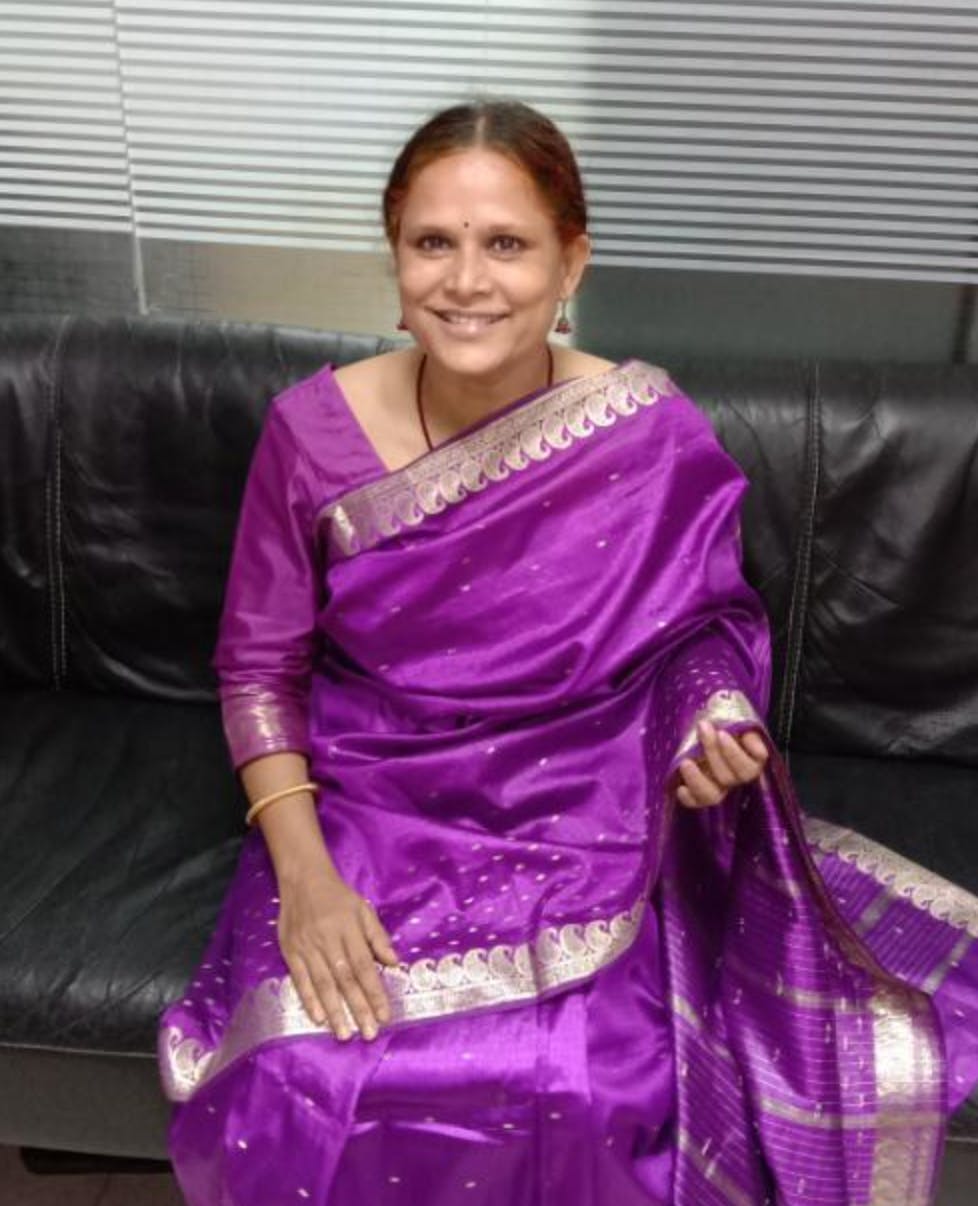
Banani Mallick is a freelance writer based in Bangladesh.
Banani Mallick is a freelance journalist and contributer to The Third Pole, which covers news on the Himalayan watershed. She was previously a staff correspondent for Bangladeshi newspaper The Daily Observer. Her recent work includes an interview with an artist who sings about Bangladesh’s rivers.
Media freedom in Bangladesh is in sharp decline [Bangladesh has slid below India in the Reporters Without Borders press freedom rankings, to 163rd]. Although it is a democratic country, our government has turned authoritarian. Our Prime Minister Sheikh Hasina does not bear any criticism. The Digital Security Act [an internet security law passed in 2018] has created a culture of fear, restricting freedom of expression and freedom of the media. Innumerable journalists have been arrested, including Ahmed Kabir Kishore, a cartoonist who was jailed for drawing cartoons that mocked a powerful businessman with close ties to the government.
The DSA has 20 provisions for punishment, of which 14 are non-bailable. I once had to flee to a remote part of my village, because of a story I wrote on the Supreme Court’s decision to ban Muslim women from registering Islamic weddings, because of their menstruation cycles. I feared that I would go to prison. With the help of my editor, who is the former media adviser to the Prime Minister, I was spared retribution. I have also received threats from [far-right advocacy group] Hefazat-e-Islam and the police over stories I wrote on the communal riots, was blocked from investigating the environmental impacts of sand mining extraction in the district of Sylhet by local government officials and have been blacklisted by the Indian High Commission for my coverage of Rampal Power Station [a planned coal-fired power station jointly funded by an Indian and Bangladeshi firm to be built near the Sundarbans, the world’s largest mangrove forest].
When a law like DSA exists, how can journalists be expected to write critically about large corporations, particularly when they are politically affiliated? These corporations are essentially extensions of government. They develop land without environment impact assessments or public consultations, and build power plants in environmentally sensitive areas.
Many of the major news outlet are either government-owned or funded by big businesses. For example, Bashundhara Group, one of Bangladesh’s largest manufacturing companies, owns News24, a cable TV channel. At a previous publication, I expressed interest in writing about the potential environmental impact of a nuclear power plant being built next to a nature reserve in Rooppur. My editor seemed impressed by my pitch. But the next day, after submitting a budget for logistic support, the story was spiked without any explanation.
Can any reporter working under the banner of large corporations report on their owners’ environmental crimes? All journalists in Bangladesh self-censor now. We also face problems accessing information, we are not protected by law enforcement agencies, and many journalists are not trained to investigate environmental crime and navigate a system designed to protect powerful vested interests.
Singapore

Singaporean independent journalist and activist Kirsten Han
Kirsten Han is managing editor of Mekong Review, a new quarterly publication. She co-founded Malaysia-based online journalism platform New Naratif and also founded We, The Citizens, a newsletter covering human rights issues in Singapore. She has written for The New York Times, The Guardian and The Washington Post. She campaigns against the death penalty.
Media freedom is heavily restricted in Singapore not just because of oppressive legislation – which goes without saying that it’s a big problem – but also an overall culture of self-censorship and self-policing because people are wary or afraid.
It also can get complicated when so many companies and enterprises are state-linked and people start to worry about political repercussions.But I think one major obstacle to reporting is the lack of access to information – the state guards information very zealously, and I feel like a lot of companies in Singapore do that too, and it’s very difficult to get people to talk. With a lack of meaningful whistleblower protection, it makes it even more difficult and investigative journalism is just really tough in Singapore.
Indonesia
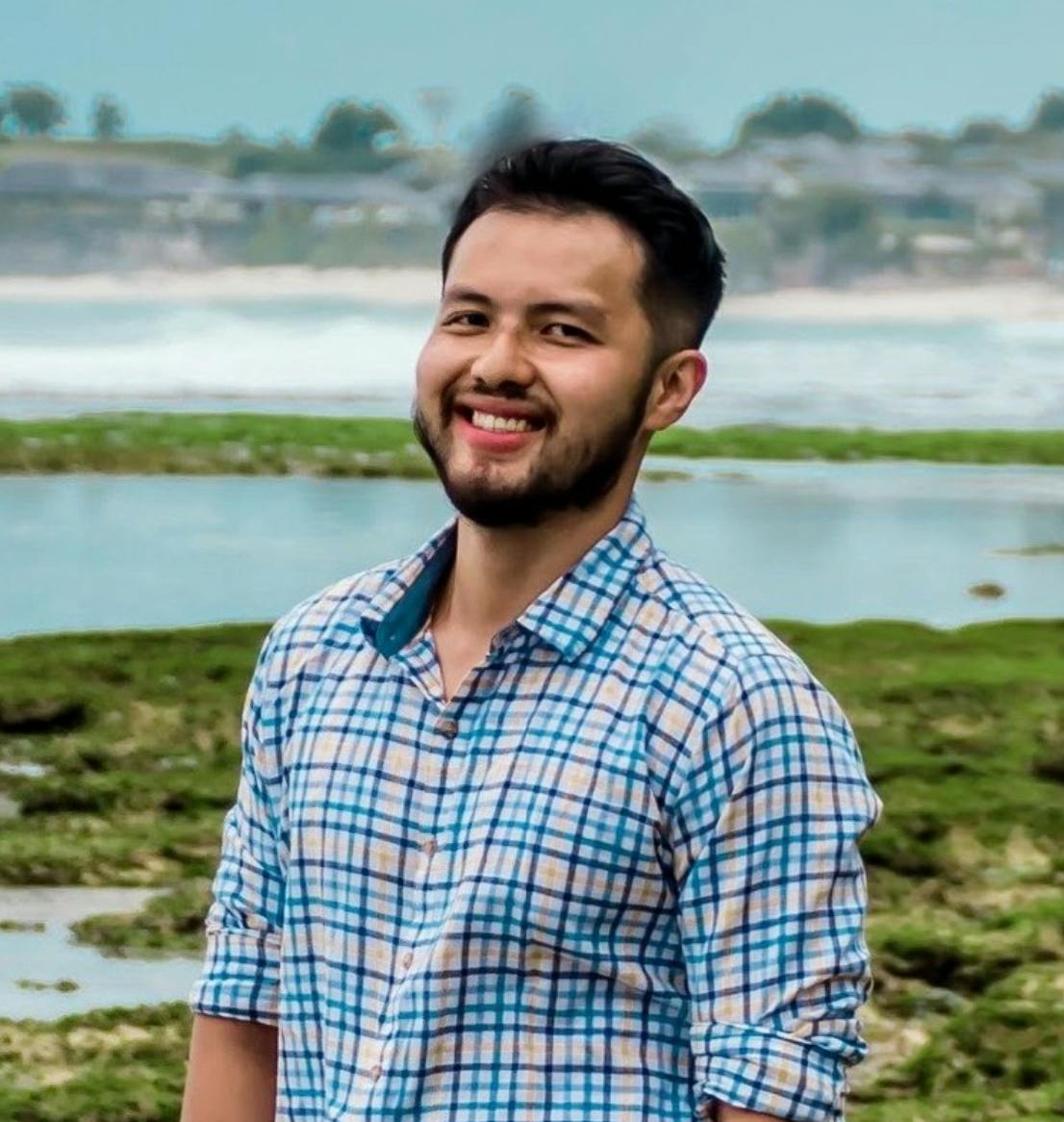
Hans Nicholas Jong is a Jakarta-based journalist covering Indonesia environmental and conservation news for Mongabay
Hans Nicholas Jong is a staff writer at environmental and conservation news website Mongabay, based in Jakarta. His recent stories include the questions raised about Indonesia’s deforestation rate and scrutiny surrounding the environmental credentials of Indonesia’s new capital city.
Reporting on environmental crime and greenwashing in Indonesia has been solid in my view – despite declining press freedom and growing threats to journalists.
I’ve noticed that more media are teaming up to investigate environmental crime. For instance, Mongabay has been collaborating with The Gecko Project, BBC News, Al Jazeera and other news outlets for investigative projects. I believe this is important to increase the quality of reporting since different outlets may have different set of expertise and skills, and also to mitigate risks, including litigation risks.
Media reporting on environmental crime covers all kinds of companies. But since Indonesia’s extractive industries are dominated by large companies, it’s only natural that media mostly reports on environmental crimes allegedly perpetrated by these companies, including multinationals headquartered in countries like Singapore and South Korea. In my opinion, while these companies are more powerful on paper as they are well-resourced, it is actually the smaller companies owned by local tycoons that I’m more wary of reporting on. These tycoons are often politically well-connected. But they usually avoid scrutiny from foreign media and therefore might feel more emboldened to threaten journalists with lawsuits.
One example is a powerful palm oil tycoon in South Kalimantan whose companies have reported at least two journalists to the police for defamation over the past few years. These journalists have been reporting on land conflicts between the companies and local communities. It’s quite common for journalists and activists to be threatened with articles from the Law on Informasi dan Transaksi Elektronik, or ITE law, under which journalists can be jailed for up to six years for online defamation (article 27) or online hate speech (article 28).
On the other hand, larger multinationals are often more open to journalists’ inquiries. Recent examples of companies being called out for environmental crimes/greenwashing are Adaro and Royal Golden Eagle (RGE). Adaro’s plan to build coal-fired power plants to supply electricity to its aluminium smelter in North Kalimantan has been reported by the media here, raising questions over the company’s claim that its smelter is a flagship green and renewable development for Indonesia. RGE, meanwhile, has been in the media for its alleged connection to timber suppliers which have been deforesting in Borneo, despite the company having adopted a no-deforestation policy since 2015.
“
Can any reporter working under the banner of large corporations report on their owners’ environmental crimes?
Banani Mallick, freelance journalist, Bangladesh
Thailand
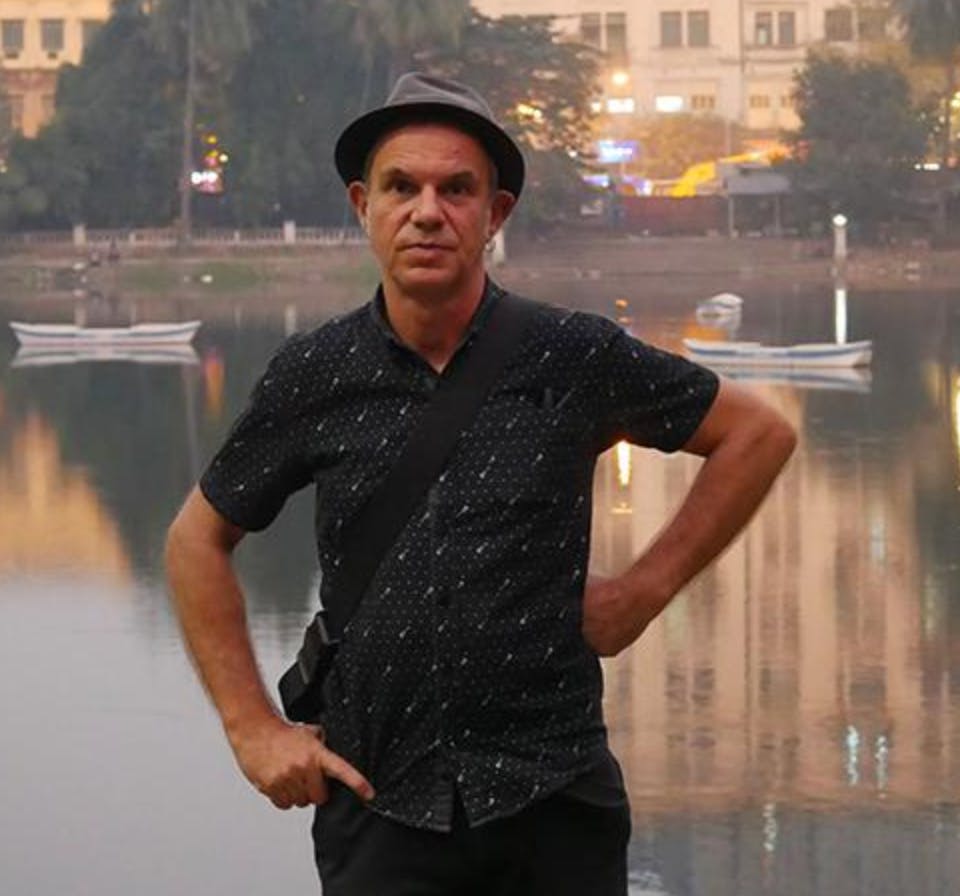
Tom Vater is a freelance journalist and author based in Bangkok
Tom Vater is a freelance journalist and author based in Bangkok. He has written for Nikkei Asia, The Mekong Review, The Wall Street Journal, The Economist and Eco-Business, on the environmental risks of Thailand’s cannibis trade.
Freedom of expression and media freedom is certainly limited in Thailand, though that is not specifically related or limited to environmental issues but rather encompasses any entrenched interests by powerful stakeholders keen to preserve their political power and business privileges. Thai journalists have to tread particularly carefully.
The high profile case of Andy Hall, a workers rights campaigner who was sued by a fruit company, definitely sent a chilling message to anyone trying to expose firms abusing their workers. On the other hand, the arrest and eventual conviction of a construction tycoon for killing and eating a rare black panther in a national park may not have happened if there had not been a huge social media campaign and news coverage of the case. That said, this was a one-off crime by a wealthy businessman, not a true environmental scandal caused by a Thai company.
A valuable and much-needed resource that reports on environmental and human rights activists and their struggles both against the Thai government and private companies is HaRDstories.org, which was founded in 2021 by the Equal Narratives Foundation to uphold human rights and deepen democracy in the country.

